Your Broadway experience is often as good as the seats you pick. Mezzanine, Orchestra, or Box, the choice can be hard, especially if you don’t know much about the theatre or Broadway theatre seating charts in general.
We are here to help. Our Broadway theatre seating charts and guides will not only give you a detailed breakdown of all the seating section, but also areas to avoid, seats with the best view, and most importantly, price maps. To further help you make the most out of your Broadway experience, we have custom expert tips for each theatre.
Broadway Theatre Seating Charts
The best theatres, the best shows and the best seating charts! They're all here:
1 Ambassador Theatre
The Ambassador Theatre is a Broadway theatre designed by Herbert J. Krapp and was constructed for the Shubert brothers in 1921. The theatre has two levels and is operated by The Shubert Organization. The auditorium interior is designated as New York city's landmark.
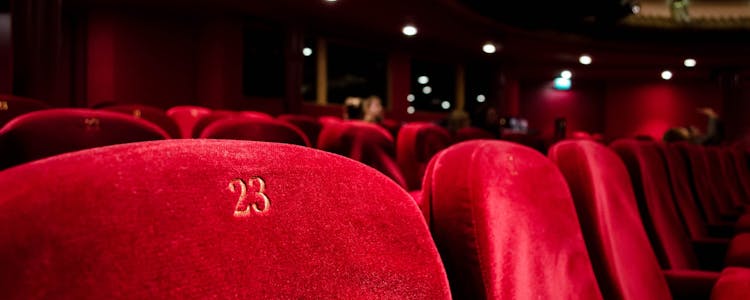
2 August Wilson Theatre
The August Wilson Theatre is a Broadway theatre named after the playwright August Wilson, who wrote ten plays set primarily on the African-American community, collectively known as The Pittsburgh Cycle. The art deco themed theatre was designed by architects Kenneth Franzheim, and C. Howard Crane in 1924. The theatre opened in 1925, as a theatrical society called the Theatre Guild.
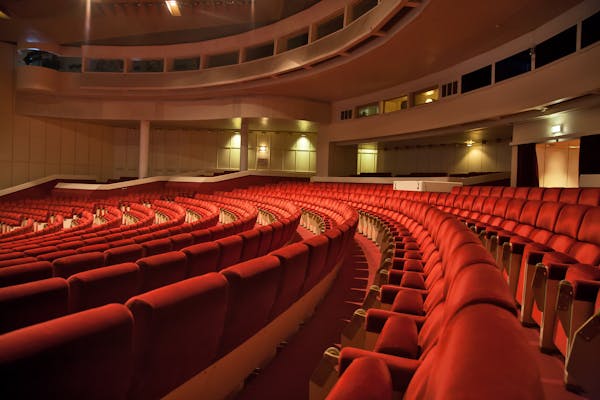
3 American Airlines Theatre
The Selwyn Theatre, now known as the American Airlines Theatre, is a Broadway theatre developed by brothers Edgar and Archibald Selwyn in 1918. It was designed with an Italian Renaissance style featuring a brick-and-terracotta facade. Since 2000, American Airlines has held the naming rights to the theatre.
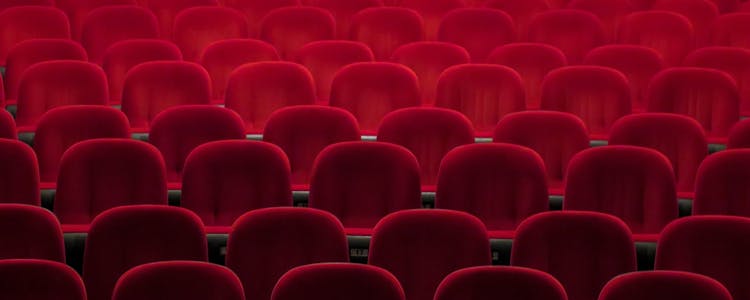
4 Bernard B. Jacobs Theatre
Opened in 1927, the Bernard B. Jacobs Theatre is a Spanish-style building designed by Herbert J. Krapp, with its facade and auditorium being one of New York's noteworthy landmarks. The auditorium features a vaulted ceiling, box seating and a large balcony incorporated with Spanish-style detailing.
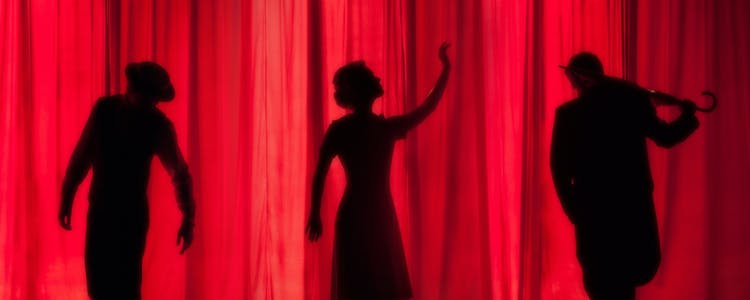
5 Al Hirschfeld Theatre
Originally known as the Martin Beck Theatre, the Al Hirschfeld Theatre is a Broadway theatre designed by G. Albert Lansburgh. The building's design is inspired by Byzantine and Moorish styles. The theatre has two levels and operates under Jujamcyn Theaters.
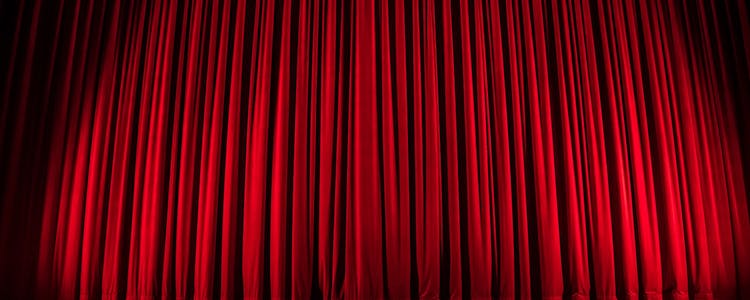
6 Booth Theatre
Named after the 19th-century American actor Edwin Booth, the Booth Theatre opened in 1913. Designed by Henry Beaumont Herts, the theatre features an Italian Renaissance style with two levels. The theatre's facade made of terracota and brick, is a popular landmark. The theatre is also one of the few theatres that feature walls with windows and wooden panelling below.
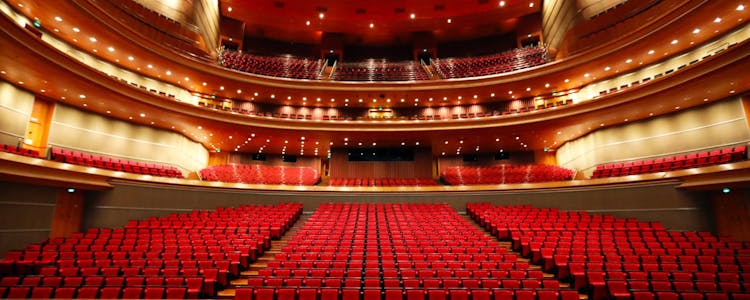
7 Broadhurst Theatre
Named for British-American theatrical producer George Broadhurst, the Broadhurst Theatre opened in 1917 with 'Misalliance', a comedy by George Bernard Shaw. Designed by Herbert J. Krapp, the highlight of the building is its neoclassical facade made of terracotta and bricks in buff colour.
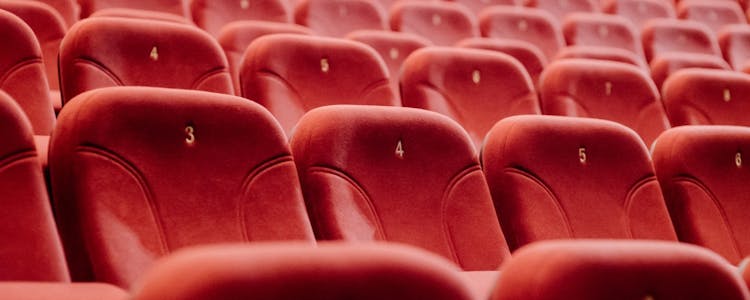
8 Broadway Theatre
Originally known as the Universal's Colony, Ciné Roma, and many more names, the now Broadway theatre opened on day of christmas in 1924. The theatre is operated by The Shubert Organization. The theatre is physically located at Broadway, and it is one of the few Broadway theatres to be situated likely.
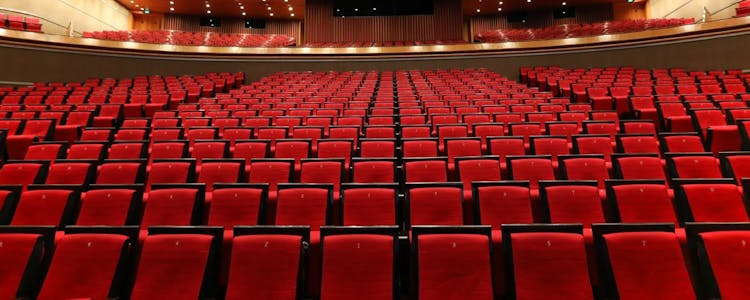
9 Circle in the Square Theatre
Originally located at a former nightclub in Greenwich Village in 1951, the theatre is now located in Paramount Plaza's basement in Midtown Manhattan. The theatre features an open stage (thrust stage), and is one of only two theatres in Broadway to feature a thrust stage.
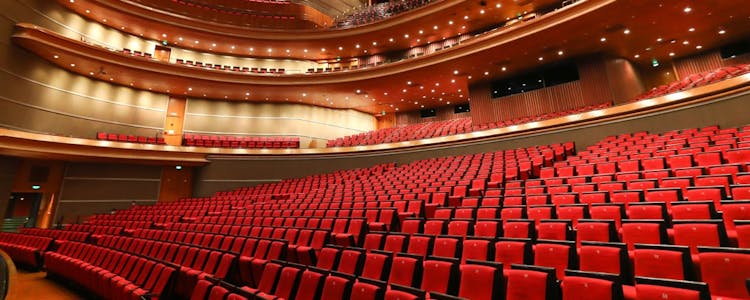
10 Brooks Atkinson Theatre
Originally known as the Mansfield Theatre, the Brooks Atkinson Theatre opened in 1926. Designed by Herbert J. Krapp, the theatre features a Spanish Revival style design. The theatre was developed along with the Biltmore Theatre. In November 2022, the theatre was again renamed after the 20th century Black singer and actress Lena Horne.

11 Ethel Barrymore Theatre
The Ethel Barrymore Theatre is a Broadway theatre which opened in 1928. Designed by Herbert J. Krapp, the building features Adam, Elizabethan, and Mediterranean styles. Named after the American actress Ethel Barrymore, the theatre is managed by the Shubert Organization and is one of the few on Broadway to have never been renamed or sold.
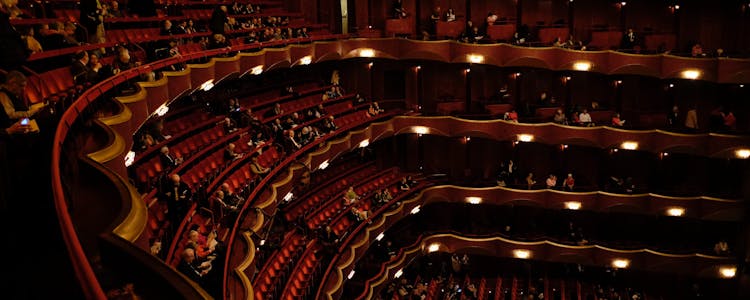
12 Cort Theatre
Originally known as the Cort Theatre, the Broadway theatre was built in 1912. Designed by architect Thomas W. Lamb, the theatre features a neoclassical design. Between 2021 to 2022, an additional building designed by Kostow Greenwood Architects was added to the theatre's west side. In 2022, the theatre was renamed as James Earl Jones Theatre after the Black actor James Earl Jones.
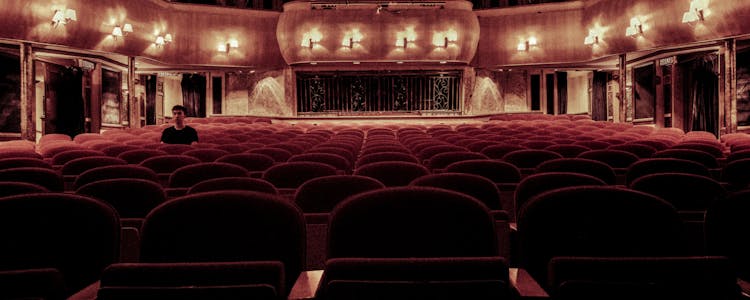
13 Hudson Theatre
The Hudson Theatre is one of the oldest surviving theatres in Broadway, built between 1902 and 1903. Designed by Israels & Harder (interior) and J. B. McElfatrick & Son (exterior), the site is one of the city's landmarks. The theatre was originally run by Henry B. Harris, a victim of the Titanic sinking in 1912. From being a network radio studio to a nightclub, in 2017 the theatre again reopened as a Broadway theatre.
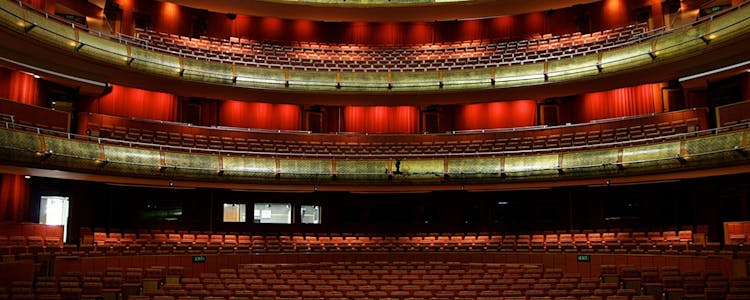
14 Gershwin Theatre
Originally known as the Uris Theatre, the now Gershwin Theatre opened in 1972. The theatre is named after two brothers who wrote many Broadway musicals - Ira Gershwin and George. The theatre has hosted the first six Tony Awards shows there. The theatre hosts concerts, plays, and musicals, including the Wicked since 2003.
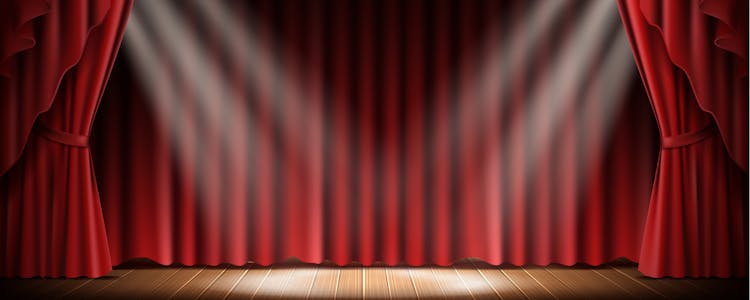
15 Imperial Theatre
The Imperial Theatre is a Broadway theatre that opened in 1923. Designed by Herbert J. Krapp, the interiors of the building are a renowned landmark in New York. The theatre is run by the Shubert Organization. The theatre is home to some of the longest-running musicals, including Les Miserables and Dreamgirls.
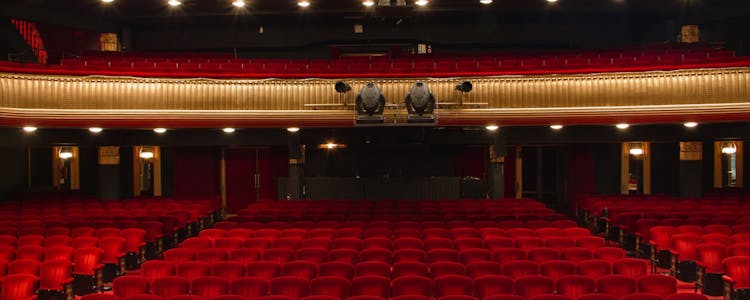
16 John Golden Theatre
Originally known as Masque Theatre, the John Golden Theatre opened in 1927. Designed by Herbert J. Krapp, the theatre features a Spanish-style design. The theatre is renamed after the producer John Golden in 1937, who named it after leasing the theatre in 1936. The theatre is now managed by The Shubert Organization and often hosts revues, and productions with smaller teams.

17 Majestic Theatre
The Majestic Theatre is a Broadway theatre that opened in 1927. Designed by Herbert J. Krapp, the theatre was built for Irwin S. Chanin, a real-estate developer in Spanish- style design. The theatre is home to one of the longest-running production of all time, 'The Phantom of the Opera' since 1988 until now.
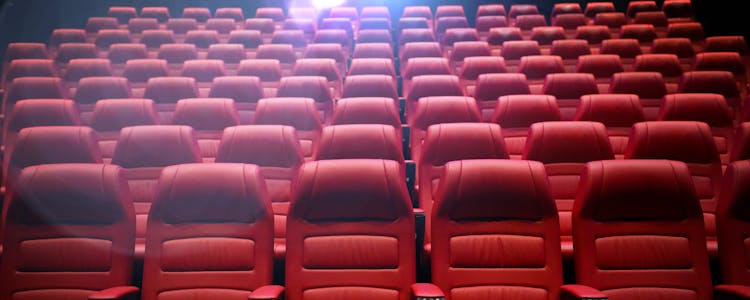
18 Longacre Theatre
The Longacre Theatre is a Broadway theatre that opened in 1913. The theatre is named after the Longacre Square, which is now known as Times Square. Designed by Henry B. Herts, the theatre is managed by The Shubert Organization. The building was initially a theatre playing musicals, however, later the building was leased out to a radio and television studio in 1944. It was only in 1953 the building was converted back to a theatre.
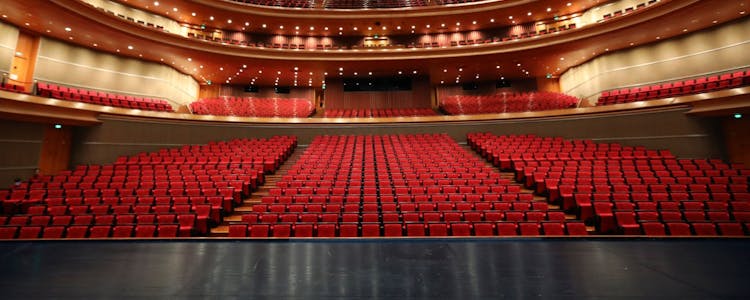
19 Lunt-Fontanne Theatre
Originally known as the Globe Theatre, inspired by the Shakespearean theatre of the same name, the theatre is now known as the Lunt-Fontanne Theatre, inspired by the names of the theatrical actors and couple Alfred Lunt and Lynn Fontanne. The theatre opened on the 10th of January in 1910. The theatre was designed in a Beaux-Arts style by Carrère and Hastings. The theatre has been managed by The Nederlanders since 1973.
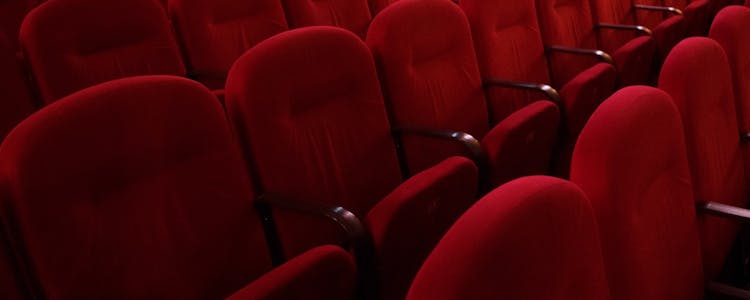
20 Marquis Theatre
The Marquis Theatre is a Broadway theatre located inside the New York Marriott Marquis hotel. The theatre opened in 1986 and was designed by John C. Portman Jr. The theatre's design was highly criticized at the beginning, and the theatre does not have ample space and dedicated restrooms.
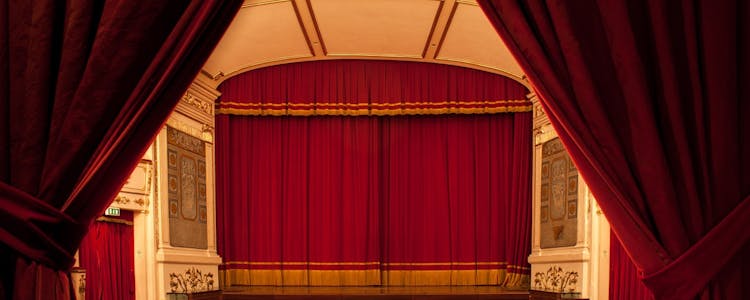
21 Neil Simon Theatre
Formerly known as the Alvin Theatre, the theatre was later renamed to Neil Simon Theatre in 1983. The theatre opened in 1927 and was designed by Herbert J. Krapp. The theatre is managed by the Nederlander Organization. The auditorium facade and interiors are one of the landmarks of New York City.

22 Lyric Theatre
Originally known as the Ford Center for the Performing Arts, the Foxwoods Theatre, and the Hilton Theatre, the building opened in 1998. The theatre is now known as Lyric Theatre after ATG acquired the site and renamed it in 2013. Designed by Richard Lewis Blinder and Peter Kofman, the theatre features a proscenium arch. The current Lyric Theatre building was made by merging two old theatres - the Apollo theatre and the former Lyric theatre building.
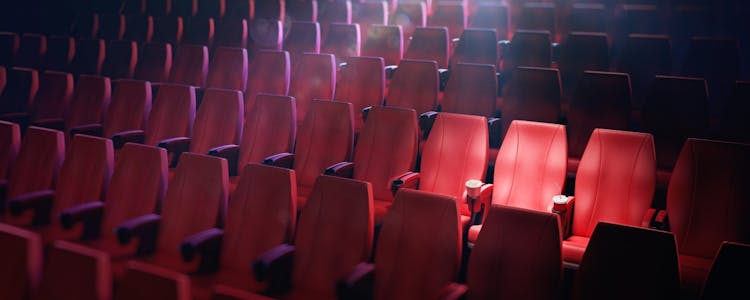
23 Schoenfeld Theatre
Known as the Plymouth Theatre earlier, the Gerald Schoenfeld Theatre is a Broadway theatre that opened in 1917. The theatre building was designed by Herbert J. Krapp. In 2005, the theatre was renamed after president Gerald Schoenfeld, one of the former presidents of the Shubert Organization, who manages the theatre.
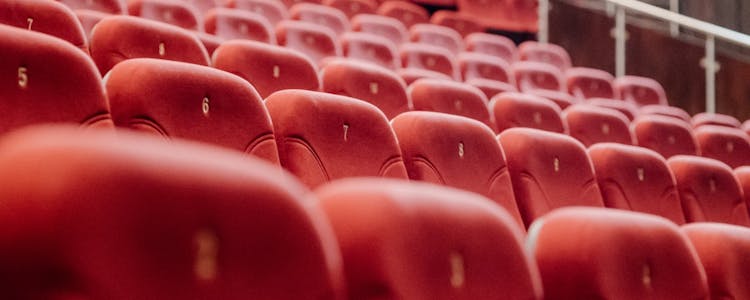
24 Minskoff Theatre
The Minskoff Theatre is a Broadway theatre that opened in 1973. The theatre is named after the building's developers Sam Minskoff and Sons. Designed by Kahn and Jacobs, the theatre features continental seating, unlike the other Broadway theatres. The theatre is home to the highest-grossing musical - The Lion King since 2006.
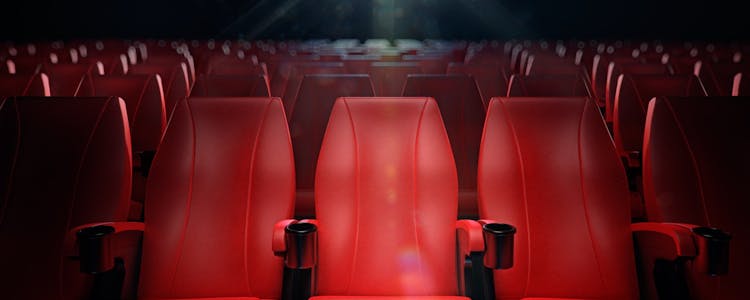
25 Stephen Sondheim Theatre
Formerly known as Henry Miller's Theatre, the theatre is now known as the Stephen Sondheim Theatre, named after the American lyricist Stephen Sondheim. First built in 1918 by actor Henry Miller, the theatre was designed by architects Ingalls & Hoffman, and Paul R. Allen. The theatre featured neoclassical details with 950 seats. In 2009, the theatre reopened with 1055 seats.
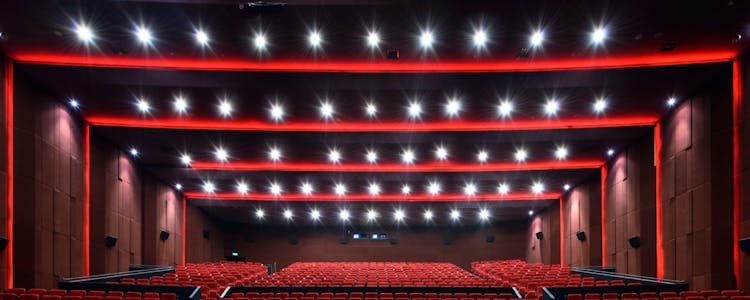
26 Music Box Theatre
The Music Box Theatre is a Broadway theatre opened in 1921. Designed by C. Howard Crane, the theatre features Palladian-inspired style. The theatre's interior and the facade are one of New York's landmarks. The theatre has two levels and is run under The Shubert Organization.
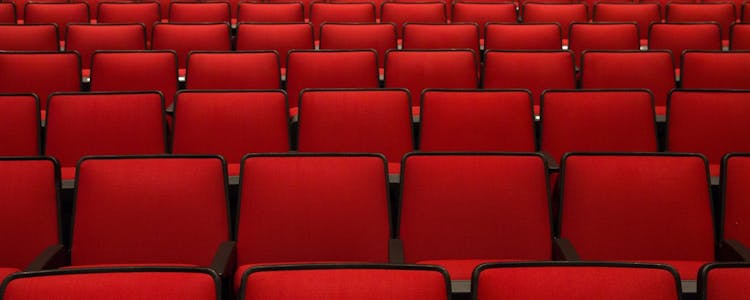
27 St. James Theatre
Formerly known as the Erlanger's Theatre, the St. James Theatre opened in 1927. Designed by Warren and Wetmore, the theatre features designs inspired by the neo-Georgian style. The theatre is managed by Jujamcyn Theaters. A. L. Erlanger, an American theatrical director and producer, who proposed the idea of the theatre as early as 1921. However, his proposals never worked out on the first two tries.
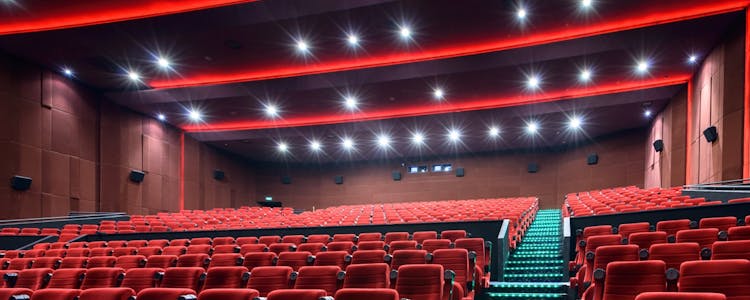
28 New Amsterdam Theatre
The New Amsterdam Theatre is one of the oldest surviving theatres in Broadway. The theatre was built between 1902 and 1903 and is managed by Disney Theatrical Productions. Designed by Herts & Tallant, the theatre features Art Nouveau style interiors and Beaux-Arts style exterior. The theatre is home to several popular musicals like Aladdin, Mary Poppins & more.
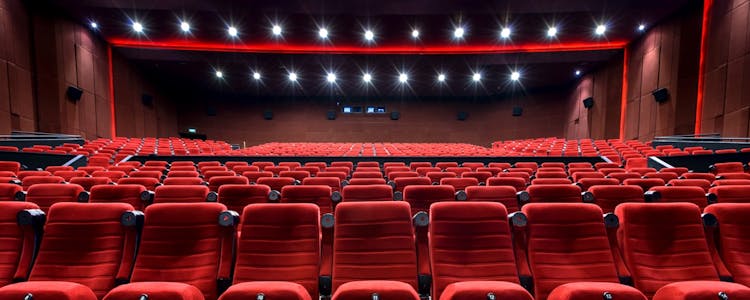
29 Winter Garden Theatre
The Winter Garden Theatre is a Broadway theatre that opened in 1911. Initially, the theatre was designed by architect William Albert Swasey, and later remodelled by Herbert J. Krapp in 1922. The theatre is often preferred for large scaled production due to its facilities and a large auditorium. The theatre is run by The Shubert Organization.
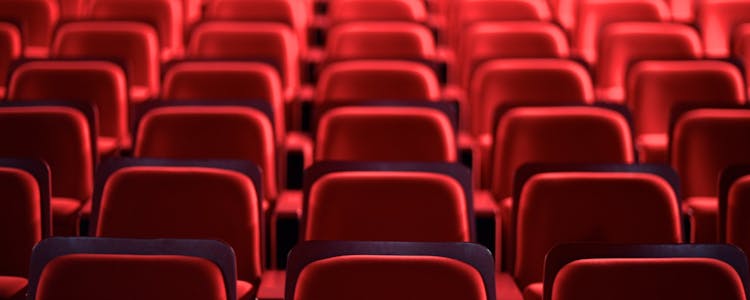
30 Radio City Music Hall
Radio City Music Hall is a theatre often referred to as the "The Showplace of the Nation". Designed by Donald Deskey and Edward Durell Stone, the theatre features an Art Deco-style design. The theatre hosts a variety of shows, including the Tony Awards, Grammy Awards and graduation ceremonies of universities.
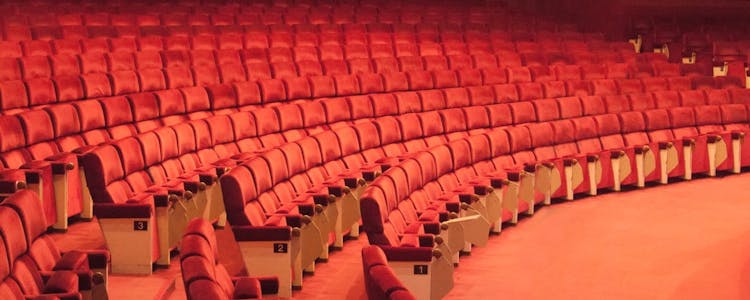
31 Walter Kerr Theatre
Formerly known as the Ritz Theatre, the Broadway theatre is now known as the Walter Kerr Theatre, renamed after the theatrical critic Walter Kerr in 1990. The theatre opened in 1921 and is run by Jujamcyn now. Designed by Herbert J. Krapp, the auditorium features balconies, murals and Adam-style detailing, along with a patterned brick facade.
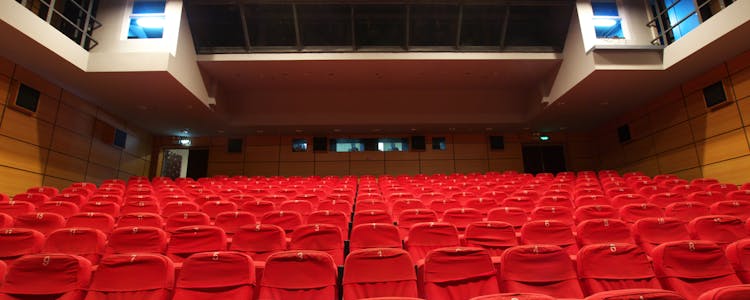
32 Richard Rodgers Theatre
The Richard Rodgers Theatre opened in 1925. Designed by Herbert J. Krapp, the theatre's interiors and facade are one of New York's landmarks. The auditorium inside features neo-Renaissance detailing along with a domed ceiling. The theatre is managed by Nederlander Organization since 1981, and in 1990 they renamed the theatre after the composer Richard Rodgers.

33 Shubert Theatre
The Shubert Theatre is a Broadway theatre that opened on October 2, 1913. Designed by Henry Beaumont Herts, the theatre features an Italian Renaissance-style design. Built for the Shubert brothers, the theatre was named after their brother Sam S. Shubert, who passed away years before the theatre's opening. The theatre is home to shows including Chicago, Matilda the Musical and Memphis.
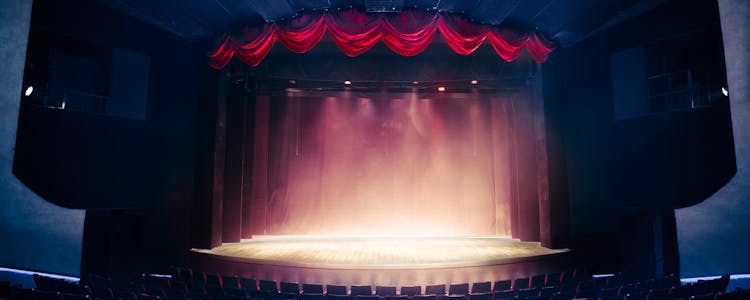
Broadway Theatre Seating Sections 101
Most Broadway theaters have three sections, namely, orchestra, front mezzanine, and rear mezzanine. There are some smaller theaters, like the August Wilson, that have only two, orchestra and mezzanine. There are box seats on either side of most theaters too for patrons looking for a private theater viewing experience.
Here’s a breakdown of each section to help you get better acquainted with our Broadway theater seating chart.
Orchestra Section Seating
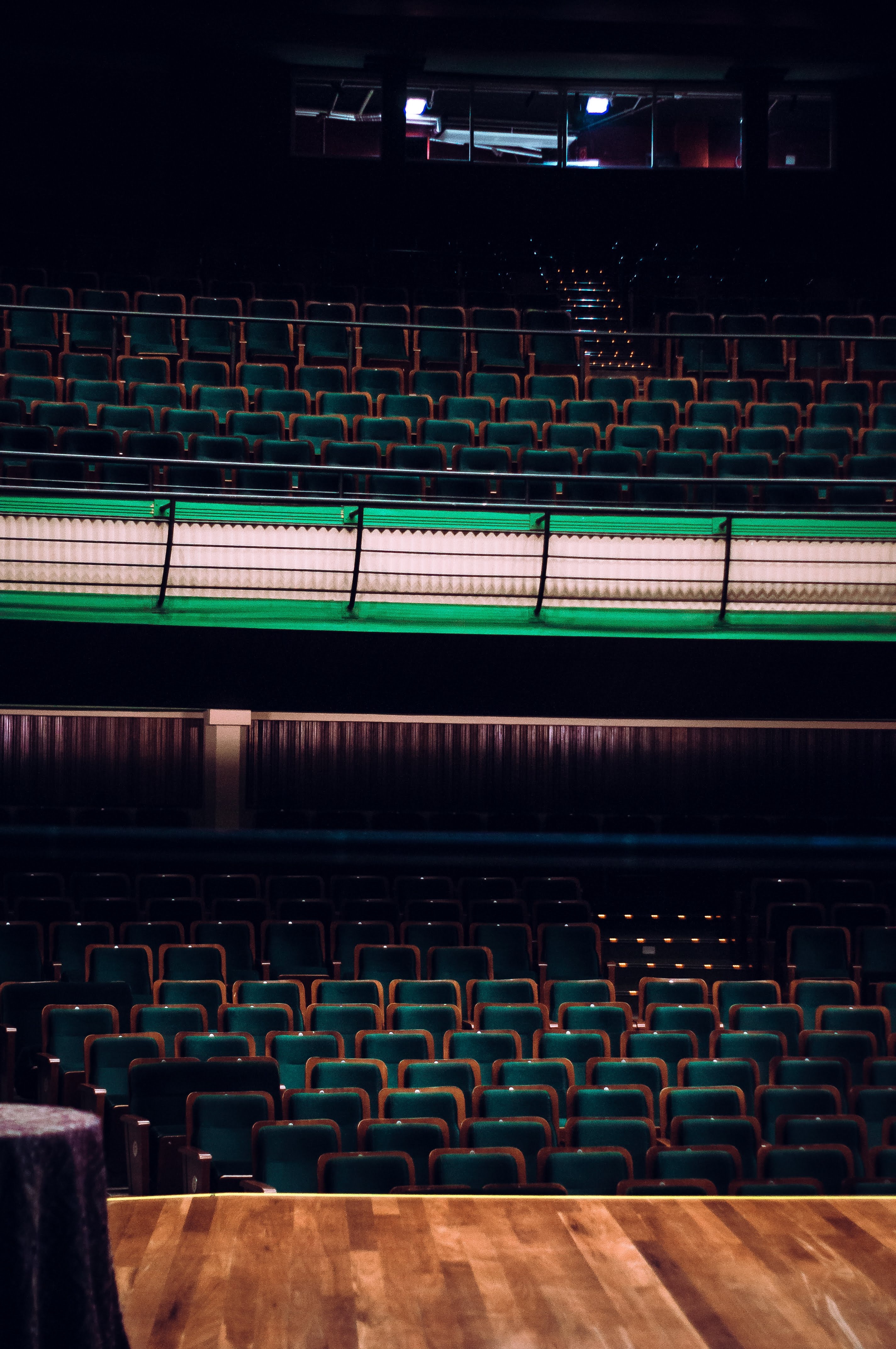
The section closest to the stage and the only one not elevated, orchestra is arguably the most popular too. Offering a mostly unobstructed view of the stage, orchestra seats are some of the most coveted and expensive seats in any theater.
Front Mezzanine Section Seating
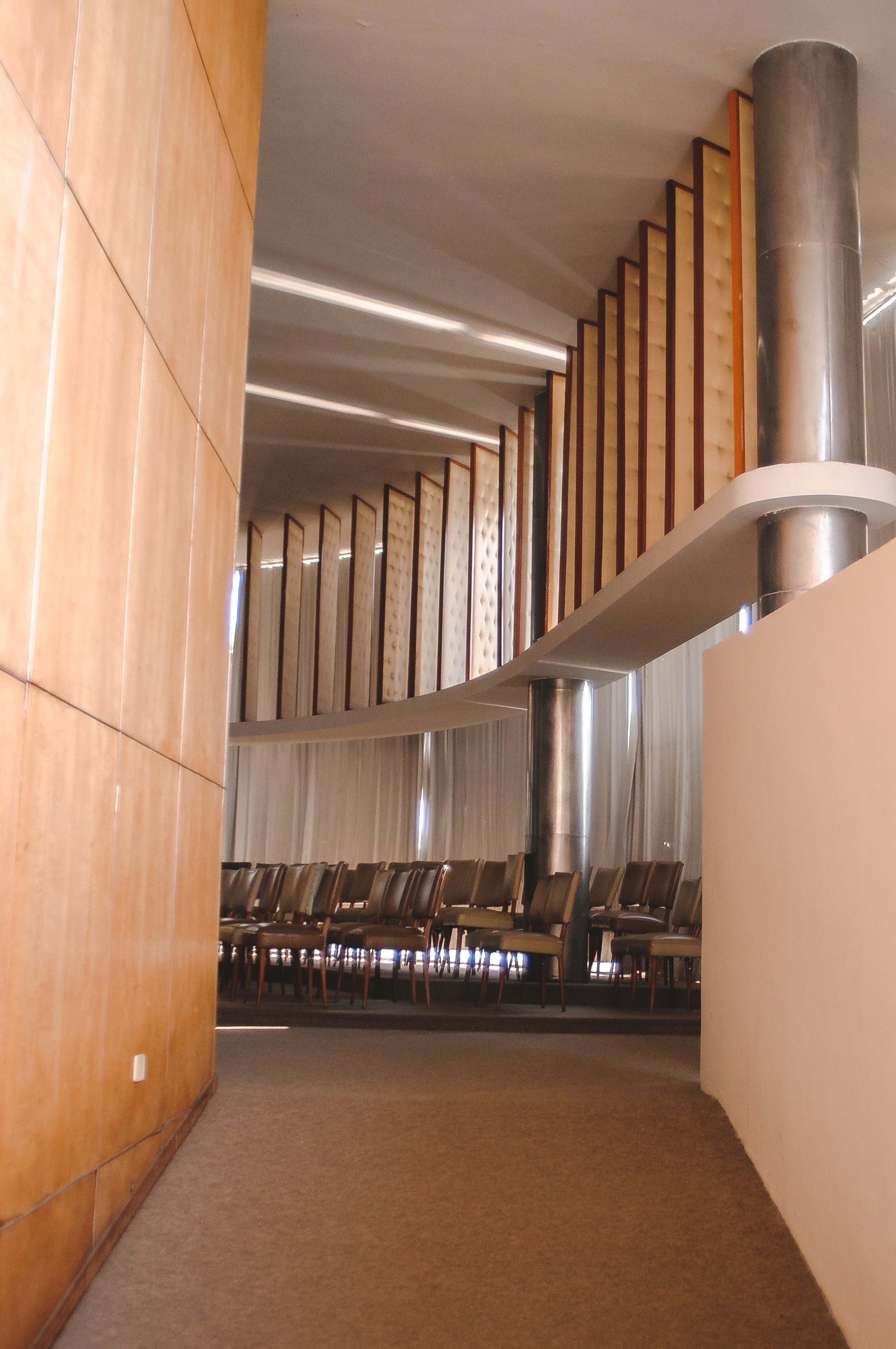
The first of the two elevated levels, front mezzanine also has some of the best seats in a theater, especially the front row center section.
Rear Mezzanine Section Seating
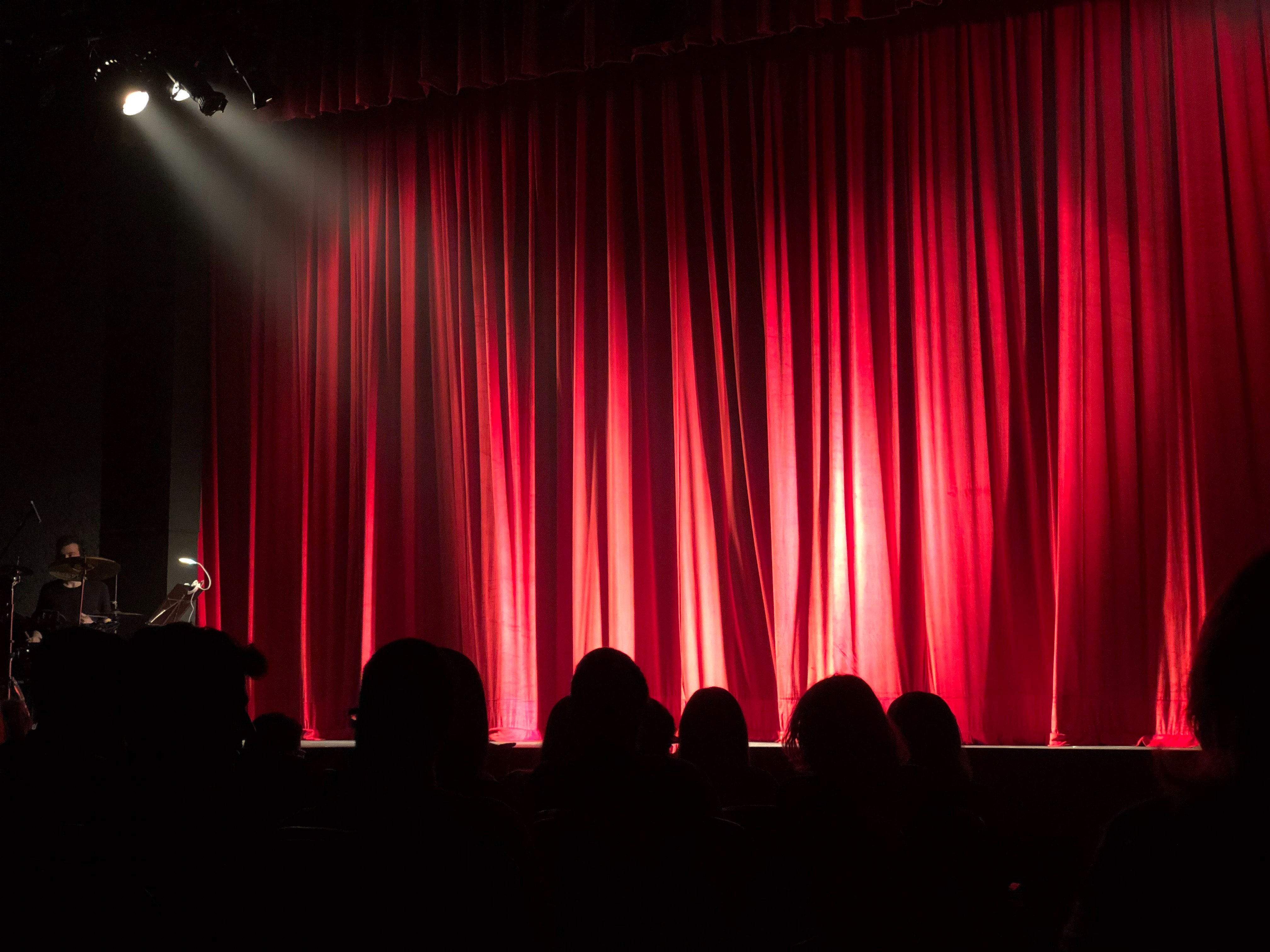
The furthest away from the stage is the rear mezzanine. While offering an average view of the stage, the ticket prices for this section sometimes are the only choice for those looking to see the popular Broadway shows on a budget.
FAQs
There are typically three sections to a Broadway theatre seating chart – Orchestra, Mezzanine, and Balcony.
The seats in the Orchestra section. It is closest to the stage and usually contains the most expensive seats – these are often referred to as “premium” seats.
The Mezzanine and Balcony sections are located further back from the stage and typically contain cheaper, and more affordable seating options.
Headout's Broadway Theatre Seating Chart Guide offers details on Broadway theatres along with links to our seating charts and discounted tickets. On the seating chart, you can pick your desired row and seat numbers, and see its price and availability on the spot itself.
Some theatres may charge additional fees for premium or special seating. Check the details while selecting your seat to determine if an extra fee applies. Furthermore, please be aware that ticket prices may vary depending on availability and show time.
More Broadway Guides
For more Broadway information, here are some helpful quick links!






